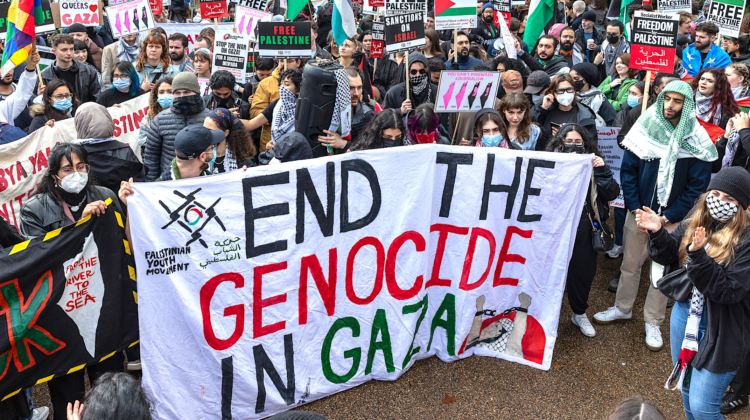Talk of Israel’s crime of genocide in the war against Hamas in Gaza is ubiquitous. It is treated as an axiom; to question the tenability of Israeli genocide is to act as if one is questioning an invariable law of nature. South Africa has even brought charges of genocide against Israel at the International Court of Justice. College protests and global public outrage at the deaths of Palestinian civilians—with the irrelevant special citation of women and children—are fueled by a misconception about the nature of genocide itself, a crime of which the Jewish state is innocent.
(I say the deaths of women and children are irrelevant in the citation of the alleged genocide because it is a surreptitious way of imputing greater moral value to the lives of women and children than to men. Nothing, however, could be further from the truth. The death of a man in war regardless of his age is just as tragic as the death of a child. All human lives regardless of sex have intrinsic moral value.)
The word genocide was first coined in 1944 by Raphael Lemkin, a Polish-Jewish lawyer, to describe the systematic extermination policies of Nazi Germany during World War II. Genocide has been defined as acts committed with the intent to destroy in whole or in part, a national, ethnic, racial or religious group. It involves preventing births within the group, and forcibly transferring children to another group.
As an historical fact, it is worth noting that in the years following the re-establishment of Israel in 1948, the Arab population of what many refer to as historic Palestine more than quintupled from 1.3 million to about 7.5 million. The Palestinian population in Judea and Samaria has continued to rise from 3.6 million in 2006, to 5.4 million in 2023. One has to point out that when there are far higher death tolls in the Middle East, say, in 2011 where up to 600,000 people have been killed in Syria’s civil war—a number which many writers state is ten times higher than have died in the Arab-Israeli conflict since 1948—such war outcomes are never labeled as genocides. […]
— Read More: www.frontpagemag.com
What Would You Do If Pharmacies Couldn’t Provide You With Crucial Medications or Antibiotics?
The medication supply chain from China and India is more fragile than ever since Covid. The US is not equipped to handle our pharmaceutical needs. We’ve already seen shortages with antibiotics and other medications in recent months and pharmaceutical challenges are becoming more frequent today.
Our partners at Jase Medical offer a simple solution for Americans to be prepared in case things go south. Their “Jase Case” gives Americans emergency antibiotics they can store away while their “Jase Daily” offers a wide array of prescription drugs to treat the ailments most common to Americans.
They do this through a process that embraces medical freedom. Their secure online form allows board-certified physicians to prescribe the needed drugs. They are then delivered directly to the customer from their pharmacy network. The physicians are available to answer treatment related questions.


